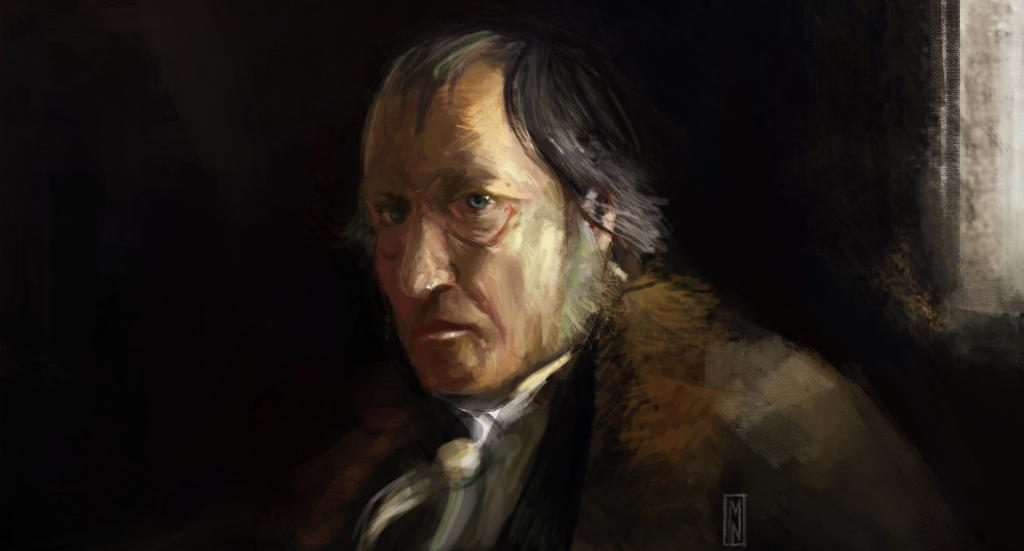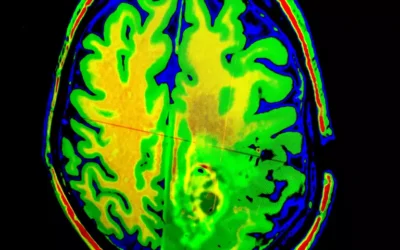Who was Hegel?
Georg Wilhelm Friedrich Hegel (1770-1831), the German philosopher renowned for his dialectical method and comprehensive philosophical system, has had a lasting impact on the development of psychology and psychotherapy. His ideas about the nature of the self, the process of mental development, and the interplay between individual and society continue to shape our understanding of the human psyche and inform therapeutic approaches. In this essay, we will explore Hegel’s key philosophical contributions, examine their influence on various schools of psychological thought, and consider their relevance to contemporary psychotherapy.
Hegel’s Dialectical Method and the Evolution of Consciousness
At the core of Hegel’s philosophy is the dialectical method, a process of thesis, antithesis, and synthesis, through which ideas and systems evolve. Hegel applied this method to the development of consciousness itself, arguing that the mind progresses through stages of increasing complexity and integration. This dynamic understanding of mental life laid the groundwork for developmental psychology and inspired later thinkers to explore the transformative potential of psychological conflict and resolution.
The Master-Slave Dialectic and the Struggle for Recognition
One of Hegel’s most influential ideas is the master-slave dialectic, which he introduced in his seminal work, “Phenomenology of Spirit” (1807). This dialectic describes the intersubjective nature of human consciousness and the central role of recognition in the formation of the self. Hegel argued that the self emerges through a process of mutual recognition, in which individuals struggle to assert their autonomy while also seeking validation from others.
This insight into the social dimension of identity formation has had a profound impact on psychoanalytic and existential theories, which emphasize the importance of interpersonal relationships and the quest for authenticity in shaping mental health.
The Influence of Hegel on Psychoanalytic Theory
Hegel’s ideas about the dialectical nature of the self and the centrality of recognition have been particularly influential in the development of psychoanalytic theory. Sigmund Freud, the founder of psychoanalysis, was deeply influenced by Hegel’s philosophy, even if he did not always acknowledge this debt explicitly.
Freud’s model of the psyche, with its dynamic interplay between the id, ego, and superego, bears the imprint of Hegelian dialectics. The ego’s struggle to mediate between the instinctual demands of the id and the moral imperatives of the superego can be seen as a psychological instantiation of the master-slave dialectic, with the ego striving for autonomy and recognition within the internal world of the psyche.
Jacques Lacan, the French psychoanalyst who sought to integrate Freudian theory with structural linguistics and Hegelian philosophy, further developed the theme of recognition in his concept of the “mirror stage.” According to Lacan, the self emerges through a process of misrecognition, in which the infant identifies with an idealized image of itself in the mirror (or in the gaze of the mother). This moment of self-objectification marks the entry into the symbolic order of language and culture, which is structured by the dialectical interplay of desire and lack.
The Hegelian Roots of Existential Psychology
Hegel’s philosophy has also had a significant impact on the development of existential psychology, particularly through the work of Jean-Paul Sartre and Rollo May. Sartre’s concept of “bad faith,” which describes the self-deception involved in denying one’s freedom and responsibility, can be seen as a critique of the inauthentic modes of existence that result from the failure to engage in the dialectical struggle for recognition.
Rollo May, the American existential psychologist, drew on Hegel’s ideas about the dialectical nature of the self in his exploration of the role of anxiety in human development. May argued that anxiety arises from the confrontation with the essential freedom and uncertainty of human existence, and that it can serve as a catalyst for growth and self-realization if faced with courage and authenticity.
The Relevance of Hegelian Ideas in Contemporary Psychotherapy
The influence of Hegel’s philosophy extends beyond specific schools of psychology and can be seen in various contemporary approaches to psychotherapy. The emphasis on the dialectical nature of change and growth, the recognition of the social and cultural dimensions of identity, and the appreciation for the transformative potential of conflict and crisis are all themes that resonate with Hegelian thought.
In cognitive-behavioral therapy (CBT), for example, the process of identifying and challenging dysfunctional beliefs and assumptions can be seen as a form of dialectical reasoning, in which the therapist helps the client to synthesize new, more adaptive ways of thinking. The increasing incorporation of mindfulness and acceptance-based strategies in CBT also reflects a Hegelian appreciation for the value of non-judgmental awareness and the integration of opposing mental states.
In family systems therapy, the focus on the reciprocal influence of individuals within a relational context echoes Hegel’s insights into the intersubjective nature of the self. The goal of promoting differentiation and autonomy while maintaining a sense of connection and belonging can be understood as a dialectical process of recognition and mutual growth.
Hegel’s Dialectical Approach to Trauma
Hegel’s dialectical philosophy offers a valuable framework for understanding the nature and impact of psychological trauma. His emphasis on the dynamic, processual character of the self, the formative role of conflict and crisis, and the intersubjective context of human development provides a rich conceptual vocabulary for grappling with the complexities of traumatic experience.
From a Hegelian perspective, trauma can be understood as a rupture in the dialectical process of self-formation, a moment of profound negation that challenges the individual’s existing sense of identity and reality. The traumatic event, whether a single overwhelming incident or a pattern of chronic abuse or neglect, confronts the psyche with an unassimilable otherness, shattering the illusion of wholeness and control.
In Hegel’s terms, trauma can be seen as a form of “absolute negativity,” a negation that is not yet sublated or integrated into a higher synthesis. The traumatized self is stuck in a state of frozen negation, unable to process and transform the traumatic experience into a new, more encompassing configuration of meaning and identity.
This dialectical understanding of trauma sheds light on the profound disorientation and fragmentation that often characterize traumatic states. The traumatized individual is caught between the nospace of repetition and the “not-yet” of integration, haunted by intrusive memories and affects that resist symbolic representation and narrative coherence.
However, Hegel’s philosophy also offers hope for the possibility of healing and growth in the aftermath of trauma. Just as the dialectical process moves through moments of negation and conflict towards higher forms of synthesis and self-realization, the process of recovery from trauma can be understood as a gradual reintegration and transformation of the shattered self.
This process of post-traumatic growth is not a simple return to a pre-traumatic state of wholeness, but rather the emergence of a new, more complex and resilient form of subjectivity that has incorporated the traumatic experience into a broader narrative of meaning and purpose. In Hegelian terms, it is a form of “determinate negation,” a negation that preserves and transforms the essential moments of the traumatic experience while transcending its limiting and destructive aspects.
Hegel’s emphasis on the intersubjective context of self-formation also has important implications for understanding the relational dimensions of trauma and recovery. Trauma is not simply an individual experience, but a rupture in the fabric of social recognition and attachment. The traumatized individual often feels profoundly disconnected from others, cut off from the networks of support and validation that are essential for healthy development.
From a Hegelian perspective, the process of healing from trauma requires the restoration of mutual recognition and the rebuilding of intersubjective bonds. This may involve the cultivation of safe, empathic relationships with therapists, loved ones, and communities of support, as well as the larger work of social and political transformation to address the systemic roots of trauma and oppression.
Hegel’s philosophy also suggests that the process of post-traumatic growth is not a purely individual journey, but a collective and historical one. The integration of traumatic experience into a broader narrative of meaning and purpose is not just a personal task, but a cultural and societal one. The recognition and healing of collective traumas, such as those inflicted by war, genocide, and systemic oppression, requires a dialectical process of social reflection, dialogue, and transformation.
In this sense, the Hegelian approach to trauma offers a vision of individual and collective healing that is inseparable from the larger project of social and political emancipation. By grappling with the wounds of history and working towards more just and nurturing forms of recognition and solidarity, we can create the conditions for the flourishing of all members of the human community.
The Ethical Implications of Hegel’s Philosophy for Psychotherapy
Hegel’s emphasis on the social and historical dimensions of human existence has important ethical implications for the practice of psychotherapy. His vision of the self as embedded in a web of cultural and interpersonal relationships challenges the individualistic assumptions that often underlie Western approaches to mental health.
From a Hegelian perspective, the goal of psychotherapy is not simply to alleviate individual symptoms or promote personal growth, but to foster the development of more authentic and fulfilling ways of being in the world, in dialogue with others and in service of the greater good. This requires a sensitivity to the social and political contexts that shape our lives and a willingness to engage in the ongoing struggle for recognition and justice.
The Challenge and Promise of Hegel’s Dialectical Vision
Hegel’s philosophy, with its emphasis on the dialectical unfolding of consciousness and the centrality of recognition in human development, offers a rich and challenging framework for understanding the complexities of the human psyche. While his ideas can be abstract and difficult to translate into concrete therapeutic interventions, they provide a foundation for a more integrative and socially engaged approach to mental health.
By embracing the dialectical nature of the self and the transformative potential of conflict and crisis, psychotherapists can help clients to navigate the challenges of growth and change in a rapidly evolving world. By recognizing the social and historical dimensions of identity and the ethical imperative of mutual recognition and solidarity, they can contribute to the development of more just and humane forms of individual and collective flourishing.
As we continue to grapple with the psychological impact of globalization, technological disruption, and social upheaval, Hegel’s vision of the self as a dynamic, relational, and historically situated being offers a beacon of hope and a call to action. By engaging with his ideas and applying them creatively to the challenges of contemporary life, psychotherapists can play a vital role in the ongoing struggle for personal and societal transformation.
Hegel’s Enduring Legacy for Psychology and Psychotherapy
Georg Wilhelm Friedrich Hegel’s dialectical philosophy has left an indelible mark on the development of psychology and psychotherapy. His insights into the nature of the self, the process of mental development, and the centrality of recognition in human life have shaped the trajectory of psychoanalytic, existential, and other schools of psychological thought.
As we navigate the complexities of the 21st century, Hegel’s vision of the self as a dynamic, socially embedded, and historically situated being remains as relevant as ever. His emphasis on the transformative potential of conflict and crisis, the importance of mutual recognition and solidarity, and the ethical imperative of social engagement offers a framework for a more integrative and humane approach to mental health.
By engaging critically and creatively with Hegel’s ideas, psychotherapists can deepen their understanding of the philosophical underpinnings of their work and develop new strategies for fostering growth, resilience, and flourishing in the face of the challenges of the modern world. In doing so, they can contribute to the ongoing project of realizing Hegel’s vision of a more rational, just, and fulfilling form of human existence.
References:
• Axelsen, J. (1979). The embodied mind: A Hegelian perspective on psychoanalysis. Philosophical Studies, 35(3), 281-295.
• Bernstein, R. J. (1971). Praxis and action: Contemporary philosophies of human activity. University of Pennsylvania Press.
• Berthold-Bond, D. (1995). Hegel’s theory of madness. SUNY Press.
• Frie, R. (Ed.). (2011). Persons in context: The challenge of individuality in theory and practice. Routledge.
• Hegel, G. W. F. (1977). Phenomenology of spirit (A. V. Miller, Trans.). Oxford University Press.
• Hegel, G. W. F. (1991). The encyclopedia logic: Part 1 of the encyclopaedia of philosophical sciences with the Zusätze (T. F. Geraets, W. A. Suchting, & H. S. Harris, Trans.). Hackett Publishing.
• Kojève, A. (1980). Introduction to the reading of Hegel: Lectures on the phenomenology of spirit (J. H. Nichols, Jr., Trans.). Cornell University Press.
• Lacan, J. (2006). Écrits: The first complete edition in English (B. Fink, Trans.). W. W. Norton & Company.
• May, R. (1977). The meaning of anxiety. W. W. Norton & Company.
• Mills, J. (2002). The unconscious abyss: Hegel’s anticipation of psychoanalysis. SUNY Press.
• Ricoeur, P. (1970). Freud and philosophy: An essay on interpretation (D. Savage, Trans.). Yale University Press.
• Sartre, J.-P. (1956). Being and nothingness: A phenomenological essay on ontology (H. E. Barnes, Trans.). Washington Square Press.
• Stolorow, R. D. (2011). World, affectivity, trauma: Heidegger and post-Cartesian psychoanalysis. Routledge.
• Taylor, C. (1975). Hegel. Cambridge University Press.
• Williams, R. R. (1997). Hegel’s ethics of recognition. University of California Press.
Read More Depth Psychology Articles:
Taproot Therapy Collective Podcast
Influences on Jung
Philosophy



























0 Comments